Most Popular
-
1
Now is no time to add pressure on businesses: top executives

-
2
CJ CheilJedang to spur overseas growth with new Hungary, US plants

-
3
Seoul to host winter festival from Dec. 13

-
4
Nationwide rail disruptions feared as union plans strike from Dec. 5

-
5
Blackpink's solo journeys: Complementary paths, not competition

-
6
N. Korea, Russia court softer image: From animal diplomacy to tourism

-
7
[Today’s K-pop] Blackpink’s Jennie, Lisa invited to Coachella as solo acts
![[Today’s K-pop] Blackpink’s Jennie, Lisa invited to Coachella as solo acts](//res.heraldm.com/phpwas/restmb_idxmake.php?idx=644&simg=/content/image/2024/11/21/20241121050099_0.jpg&u=20241121172748)
-
8
Smugglers caught disguising 230 tons of Chinese black beans as diesel exhaust fluid

-
9
Actor Song Joong-ki welcomes second child in Rome

-
10
Korean Air offers special flights for mileage users

-
China continues blocking Korean imports in Dec.
China continued to block massive amounts of South Korean cosmetics and other imports in December in what was earlier believed to be a move to retaliate against South Korea's planned installation of a US missile defense system, market sources in Beijing said.According to the sources, China's General Administration of Quality Supervision, Inspection and Quarantine blocked shipments of 19 cosmetics products from South Korea in December. (Yonhap)The number accounted for about 28 percent of the total
Feb. 7, 2017

-
Households benefit less from economic growth
South Korean households benefited less from the country's economic growth in 2015 than a year earlier, data showed Tuesday, as their income stagnated amid corporate reluctance to invest.According to the data by the Bank of Korea, households and nonprofit organizations serving them recorded a combined income of 970.4 trillion won ($853 billion) in 2015, or 62 percent of the country's gross national income at 1,565.8 trillion won. Park Seung, former chief of the Bank of Korea, speaks during an eco
Feb. 7, 2017
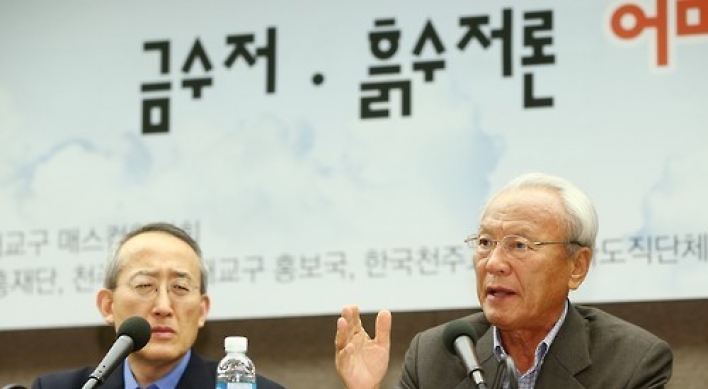
-
Population aging may crimp Korea's monetary policy
South Korea's rapid population aging may make the country's monetary policy virtually ineffective down the road by neutralizing its ripple effect on the real economy, a report said Tuesday.According to the report based on the data of 25 members of the Organization for Economic Cooperation and Development between 1995 and 2014, an interest rate hike led to the conventional ripple effects of dwindling household consumption, a fall in stock prices and declining household debt in countries, with the
Feb. 7, 2017
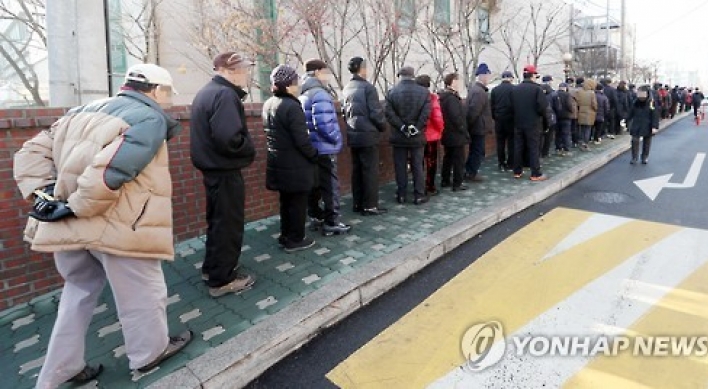
-
Cafeterias boom as people settle for cheaper meals
Business for office cafeterias boomed to its highest point in nearly two years in the last quarter as people looked for cheaper places to eat, statistics showed Monday.As expected, the restaurant business logged its worst output in more than four years in the same quarter, the most recent numbers from Statistics Korea showed. This photo, taken on Feb. 6, 2017, shows a cafeteria at a downtown office building. Statistics Korea said cafeterias logged their best business in nearly two years in the f
Feb. 6, 2017
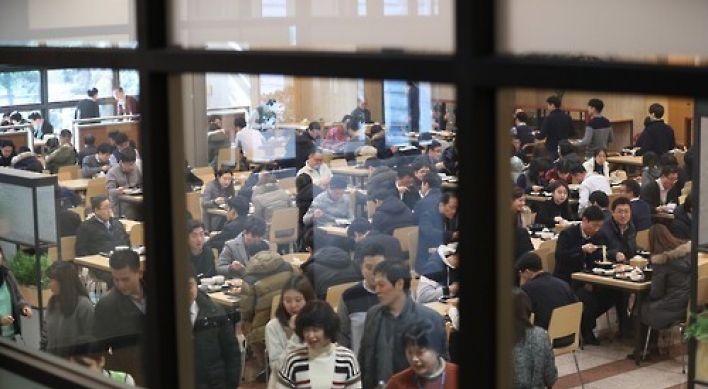
-
Faltering consumption drags down recovering economic momentum
Faltering private consumption is dragging down the recovering momentum of the South Korean economy, with the country's production side remaining in the doldrums, a state-run think tank said Monday."The Korean economy exhibited a modest recovery in investment, but faltering private consumption is limiting the recovery of economic activities," the Korea Development Institute said in its monthly evaluation of the country's economic conditions. (Yonhap)"Private consumption growth slowed on deteriora
Feb. 6, 2017
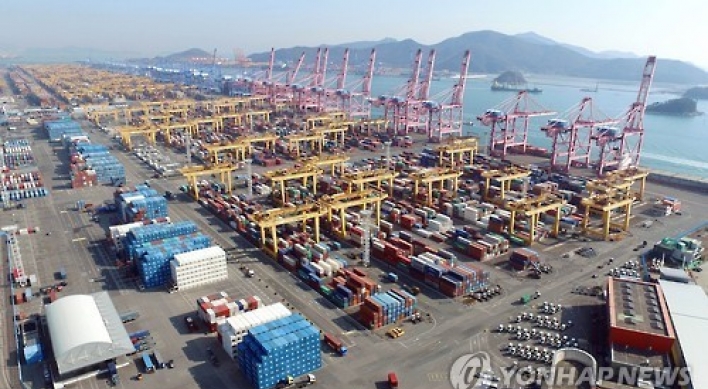
-
Korean consumers expect higher prices this year
South Koreans expect consumer prices will rise further this year due to possible increases in utility and raw materials costs, the central bank said Monday.Consumers' perceptions of increases in consumer prices in the past year came to 2.7 percent in January, the highest level in 26 months, according to data from the Bank of Korea. (Yonhap)Meanwhile, the consumers' expected inflation rate for the next 12 months came to 2.8 percent in January, the highest level in 28 months, the BOK data showed.
Feb. 6, 2017
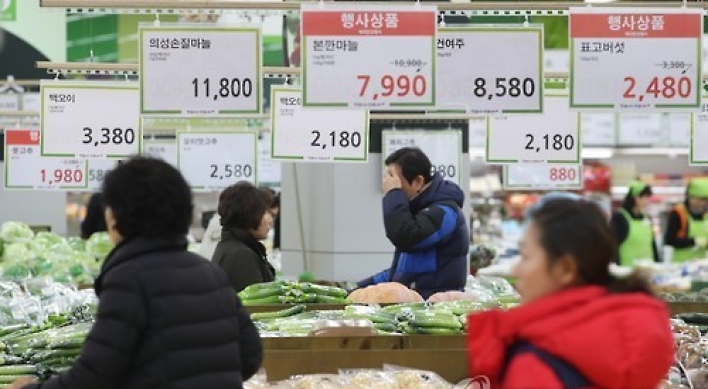
-
Korean motorists pay high oil taxes
South Korean motorists pay much higher oil taxes than their counterparts in the United States and Japan, a report said Monday, sparking calls for the government to lower them.According to the report by online crude price provider Opinet, gasoline prices in South Korea averaged 1,455 won ($1.28) per liter in December last year, with taxes accounting for 62.3 percent of the price, or 905.75 won. Customers look at oil prices listed at a gas station in Seoul on Jan. 8, 2017. (Yonhap)South Korea impo
Feb. 6, 2017
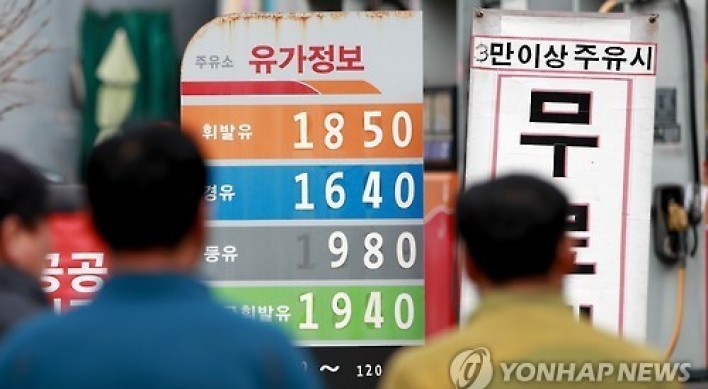
-
Alarm grows over Korea's chronic household debt woes
With many of South Korea's households piling on debt, concern has grown about potential risks facing Asia's key economy already in the doldrums.Some economists warn that private household debt in the country may increase to as much as 1,500 trillion won ($1,310 billion) at the end of this year, close to four-fold of South Korea's yearly budgets set at around 400 trillion won. A sign of the mortage loan service department at a South Korean bank in a file photo. (Yonhap)Simply calculated, it means
Feb. 6, 2017
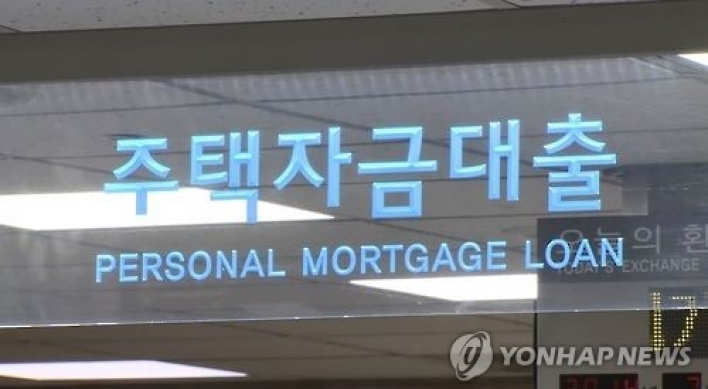
-
Self-sufficiency rate of grain, beef, seafood sharply falls
South Korea‘s self-sufficiency rate of grain, beef and seafood sharply fell last year as imported food items appealed to consumer tastes with their lower prices and variety of flavors, according to government data on Sunday.The nation’s self-sufficiency rate of grain, excluding feed for animals, dropped to 48.4 percent in 2016, from 55.6 percent in 2010, showed the data by the Ministry of Agriculture, Food and Rural Affairs. (Yonhap)South Korea imports most of its animal feed. Including animal
Feb. 5, 2017
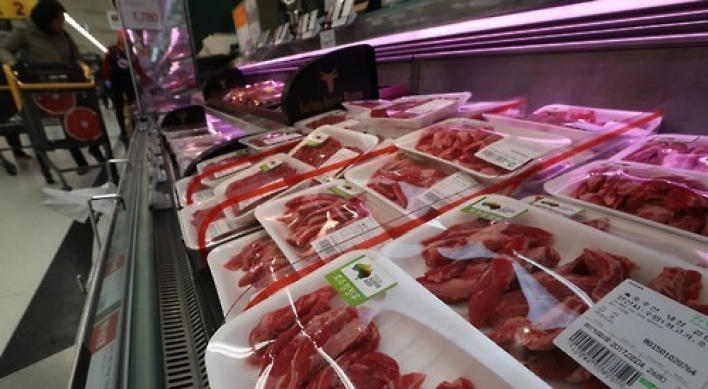
-
Korea’s current account surplus narrows in 2016
South Korea’s current-account surplus narrowed in 2016 from a year ago, central data showed on Friday. The country‘s current account surplus stood at $98.68 billion in 2016, down from a surplus of $105.94 billion a year earlier. The surplus was the second-largest since the government started to compile the data, but came as a decline in imports is greater than a decrease in exports, an official at the central bank said. “The exports declined last year but imports fel
Feb. 3, 2017
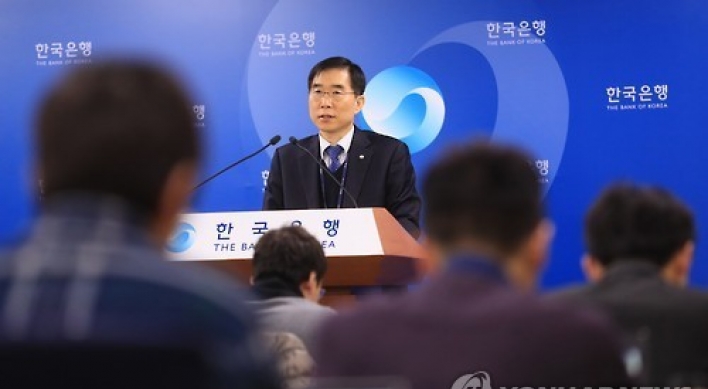
-
Govt. under fire for losing policy control
The government is facing criticism for losing control of major policies amid a political maelstrom stemming from the impeachment of President Park Geun-hye over a corruption scandal in December, analysts said Friday.As if defying a government vow to rein in inflation, businesses are scrambling to jack up product prices. Also, the government has irked small merchants and self-employed people by requiring them to stick to stricter rules on the safety of electric appliances and daily goods. People
Feb. 3, 2017
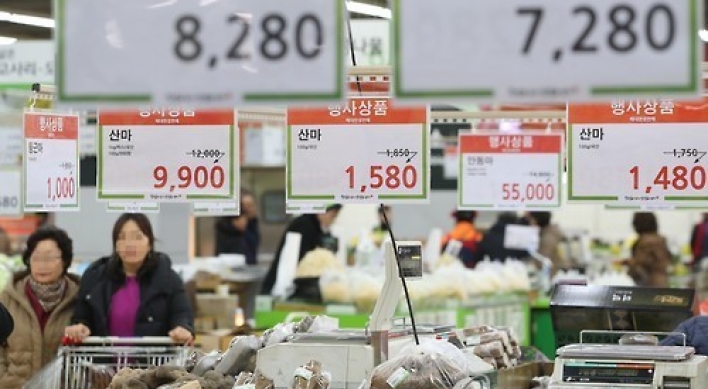
-
Watchdog to release info on price-fixing cases
South Korea's antitrust watchdog will make public a set of data on price comparison regarding price-fixing cases to help customers take legal action, government officials said Friday.The information contains data on prices before and after suspected companies engage in price collusion collected by the Fair Trade Commission, according to the officials. (Yonhap)Customers who seek compensation from the price-rigging practices can submit the price comparison data as powerful evidence to the court, t
Feb. 3, 2017
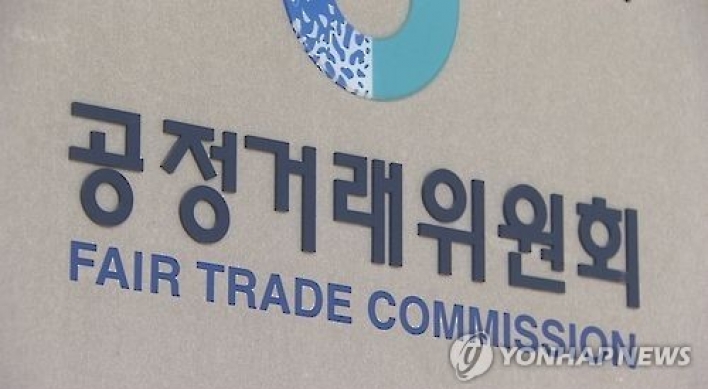
-
Korea's FX reserves up in January
South Korea's foreign exchange reserves rose slightly in January from a month earlier due to increased gains from investment in foreign assets and an increase in the dollar-converted value of non-dollar currencies, central bank data showed Friday.As of the end of January, the country's foreign exchange reserves came to $374.04 billion, up $2.94 billion from the previous month, the Bank of Korea said in a statement. (Yonhap)Foreign exchange reserves consist of securities and deposits denominated
Feb. 3, 2017
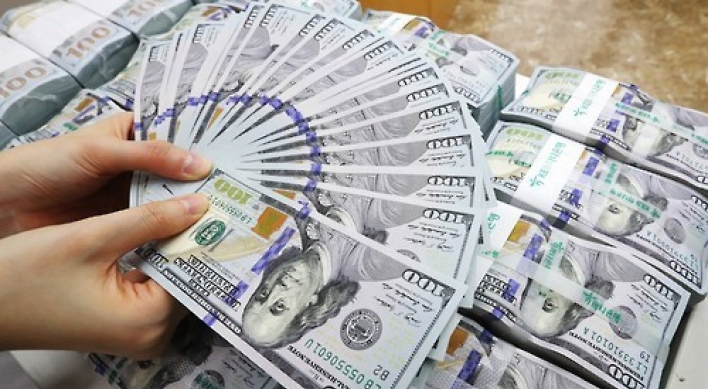
-
Slowing economy lures young Koreans to claw machines
In one corner of a bustling street in Seoul's Hongdae district popular with young people, 30-something office worker Lee Choon-han's face is glued to the glass of a coin-operated claw machine. For about $1, Lee can drop the claw twice to try to grab prizes such as plush toys, key chains or cheap watches. After three failed attempts, his skill pays off and he captures a Pokemon doll. (Yonhap)"Every time I go past this street, I play it. If I win, I feel as though it awards a small fortune to me,
Feb. 3, 2017
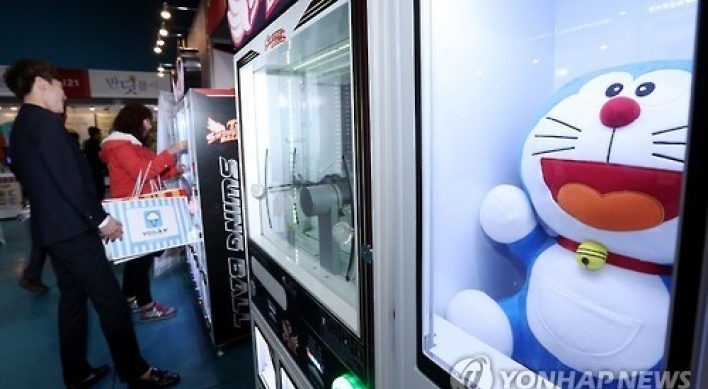
-
Trump pledges to speed up NAFTA renegotiation
US President Donald Trump said Thursday he will speed up renegotiation of the North America Free Trade Agreement, slamming the deal as a "catastrophe" for the US."I have very serious concerns about NAFTA. NAFTA has been a catastrophe for our country. It's been a catastrophe for our workers and our jobs and our companies. They're leaving our country. I want to change it," Trump said at the start of a meeting with some members of Congress. (Yonhap)Trump said the letter F in NAFTA should mean not o
Feb. 3, 2017
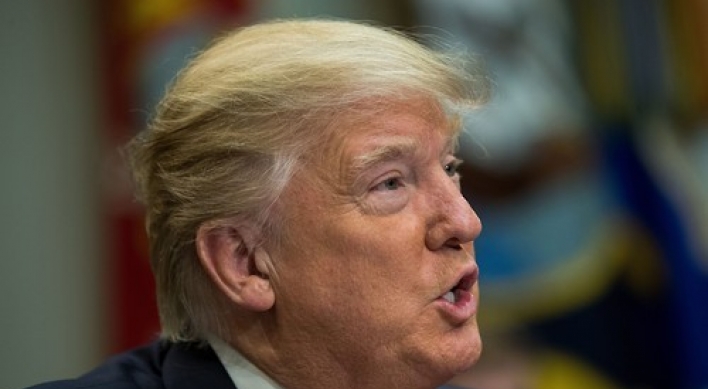
-
Koreans turn to value brands amid economic slump
More South Koreans choose to go for cheap but quality brands at places like dollar-shop chain Daiso and second-hand shops in search of good deals amid a prolonged economic slump, industry officials said Thursday.Japan-based Daiso, which sells products priced from 2,000 and 5,000 won ($4.36), operates over 1,000 outlets across the country, a jump from 850 in 2012, the company said. (Daiso)"More consumers choose Daiso as the company has a team of officials who strictly maintain the product's quali
Feb. 2, 2017
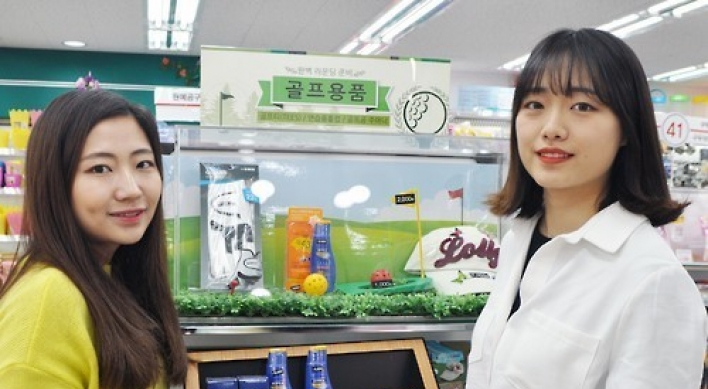
-
Consumer prices rise fastest in over four years in Jan.
South Korea’s consumer prices rose at the fastest pace in over four years in January, driven up by sharp price hikes in fresh food and oil, government data showed Thursday.The consumer price index gained 2 percent in January from a year earlier, the highest level since 2.1 percent in October 2012, according to Statistics Korea. The on-year growth of the index had stayed just above zero percent since May last year and started to increase from September in the 1 percent range, hitting 2 percent la
Feb. 2, 2017
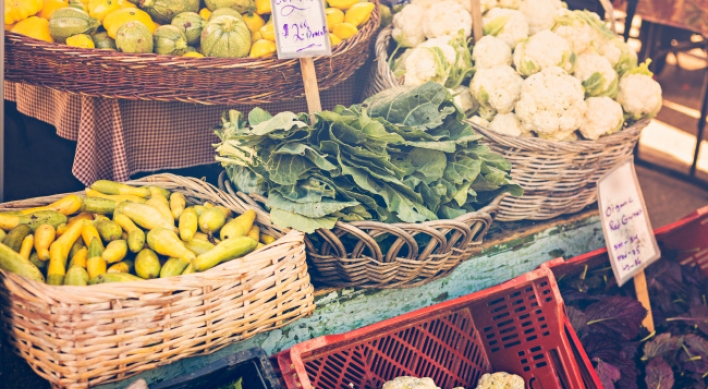
-
Koreans consume more foreign beef over expensive local hanwoo
South Koreans consumed more American and other foreign beef than expensive local beef last year, a move that has lowered the country's self-sufficiency rate for beef to below 40 percent over 13 years, a state-run think tank said Thursday.Last year, South Koreans consumed 362,000 tons of foreign beef, accounting for 62.3 percent of the total beef consumption in the country, according to the Korea Rural Economic Institute.(Yonhap)Australian beef came to 178,000 tons, making up 49 percent of total
Feb. 2, 2017
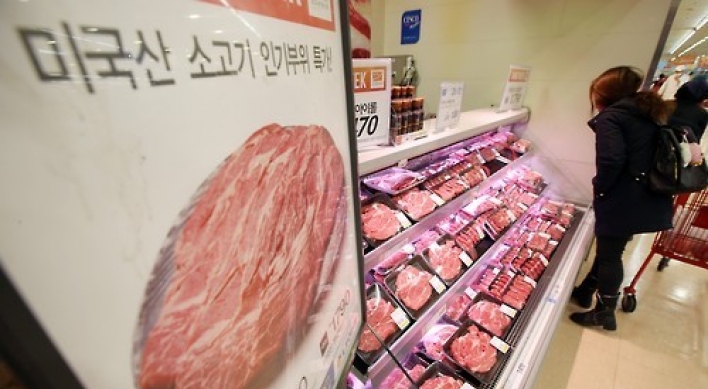
-
Lone diners drive Dec. consumption growth
Despite a fall in shipments of durable goods, South Korea's retail sales posted moderate growth in December on increased spending by people who dine or drink alone, government data showed Thursday.The country's retail sales index expanded 1.6 percent in December from the same month a year earlier, according to the data by Statistics Korea. (Yonhap)The gain was bolstered by a 4.9 percent on-year increase in sales of nondurable consumer goods, though shipments of cars and other durable goods shran
Feb. 2, 2017
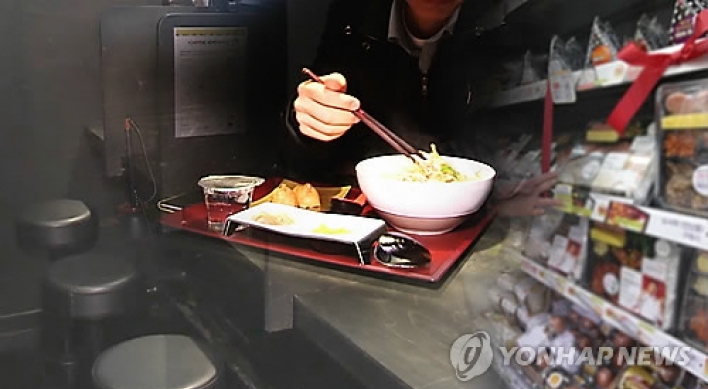
-
Korea’s exports grow for three straight months
Korea’s exports grew for a third consecutive month in January to show the first double-digit growth in four years, preliminary data showed on Wednesday, offering hope to the country’s ailing economy. In January, the country’s exports jumped 11.2 percent on-year, the first double-digit growth since January 2013, by logging $40.3 billion, according to the Ministry of Trade, Industry and Energy. Increase in semiconductors and petrochemicals shipments boosted the exports. Outb
Feb. 1, 2017
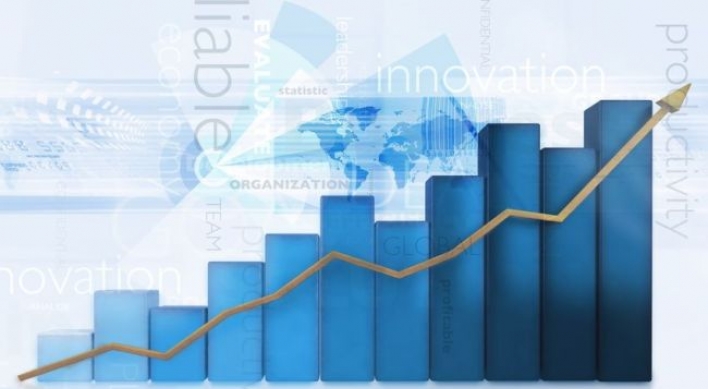







![[Today’s K-pop] Blackpink’s Jennie, Lisa invited to Coachella as solo acts](http://res.heraldm.com/phpwas/restmb_idxmake.php?idx=644&simg=/content/image/2024/11/21/20241121050099_0.jpg&u=20241121172748)























